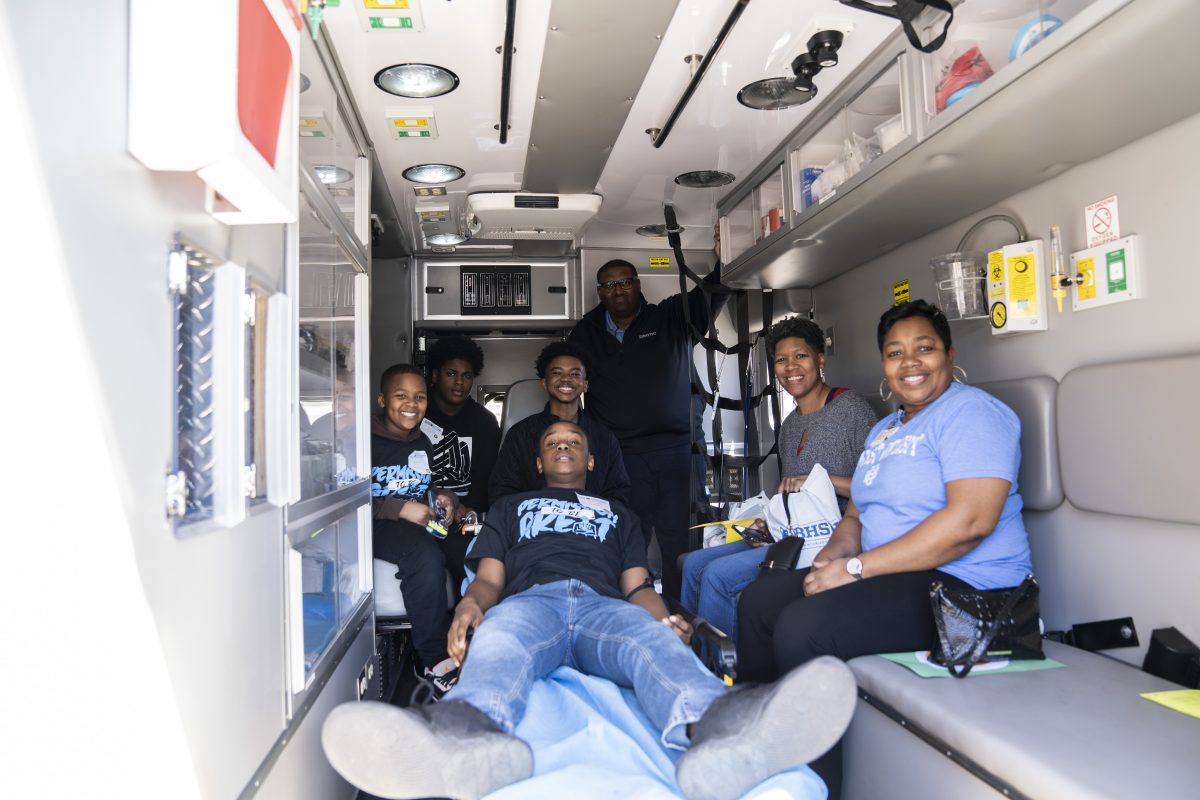The Association of American Medical Colleges has found that not only do Black men make up less than 3 percent of physicians, but that the enrollment of Black men in medical school drastically declined between 1978 and 2014.
The organization said their recent data “shows little improvement.” and that the “percentage of Black men in medical schools has increased only slightly since 2016.”
This information represents a national problem, but stakeholders and physicians in the Memphis community are determined to address the issue locally, as well,
Baptist Health Sciences University has historically held its Black Men In White Coats: Building Diverse Health Care Professionals Annual Summit in hopes of addressing this inequity, and empowering minority students to seek careers in medicine and science. On Saturday, April 6, the university will hold its sixth iteration of the event from 8;30 a.m. to 12:30 p.m. at the Baptist Health Science University assembly.
Event organizers say the free event will provide hands-on demonstrations, opportunities to learn about local resources, financial literacy, and more. Students will also be able to “speed network” with local healthcare professionals.
This event follows the announcement that the university was awarded chapter status with Black Men in White Coats in October. The national initiative was founded by Dr. Dale Okorodudu to encourage Black male students to consider careers in medicine and “increase ethnic and socioeconomic diversity in the field of medicine.”
Keith Norman, vice president of chief government affairs and community relations officer for Baptist Memorial Health Care, said they’ve seen first-hand the decline in the number of African-American males entering medical school and serving as healthcare practitioners at “every level.”
“We wanted to change that dynamic,” Norman said. “In a city like Memphis, Tennessee, where we see a population of 65 percent African Americans and then we see the increase of poverty and such high determinants of health — social determinants of health — that are moving in the wrong direction, we know that by increasing the number of African-American male and female practitioners we can help to improve the economy, as well as drive down the social determinants of health, and have better health outcomes for the entire population.”
The Office of Disease Prevention and Health Promotion defines social determinants of health as “the conditions in the environments where people are born, live, learn, work, play, worship, and age that affect a wide range of health, functioning, and quality-of-life outcomes and risks.
Norman added that representation in any field of study is always increased when “people can see others like themselves and hear their stories.” He said when participants interact with mentors and other professionals, they are encouraged to matriculate and “finish the course.”
Lilian Nyindodo, chair and associate professor of Biomedical Sciences, at Baptist Health Sciences University College of Osteopathic Medicine, said one of the primary goals of this event is to increase mentorship, as it has been identified as a factor to “boost the confidence” of Black men looking to enter the field.
Nyindodo also said lack of financial resources and literacy often pose problems and Baptist’s event hopes to remedy this. “We acknowledge that people who do come from underrepresented communities are first-generation students,” Nyindodo said. “They do not understand how to navigate paying for tuition, so that’s going to be a resource that’s going to be offered to them.”
Organizers hope the momentum and lessons learned from the event will continue long after the event is over, and mentors are able to share their knowledge and expertise on an ongoing basis. “It’s much more than an introduction on Saturday,” Nyindodo said. “It’s a lot of follow-through activities for years to come.”
Nyindodo added that being intentional in the community is important, because following up often ensures students will follow through in their endeavors. “We try to be intentional to stay present and give the students what they need to be successful in choosing the health profession,” Nyindodo said.
